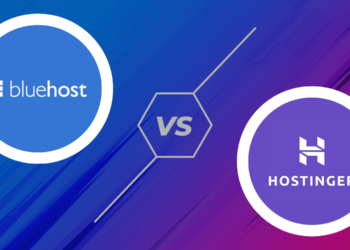Table Of Content
- 1. Blogging
- 2. Affiliate Marketing
- 3. Email Marketing
- 4. Selling Services On Fiverr
- 5. CPA Marketing
- 6. Flipping Websites
- 7. Selling On Teespring
- 8. Starting A YouTube Channel
- 9. Building A Software
- 10. Starting An Online Store
- 11. Taking Paid Surveys
- 12. Selling Your Photos Online
- 13. No-Risk Matched Betting
- 14. CPA Content Locking
- 15. Selling Online Courses
- 16. Using Paid Apps
- 17. Testing Websites
- 18. Becoming A Solo Ads vendor
- 19. Online Arbitrage
- 20. Last but not least…
Making money from home has become increasingly popular as technology has advanced and the internet has become a central hub for commerce and communication. There are now numerous ways to earn income from the comfort of your own home (Make Money From Home), including through online selling, marketing, and digital services. Whether you are looking for a full-time or part-time job, there is something for everyone in the vast and ever-growing world of home-based work. Whether it’s starting an online store, becoming an affiliate marketer, selling courses, or taking paid surveys, there is an opportunity for anyone with the drive and determination to succeed. In this article, we will explore the various ways to make money from home and how to get started in these fields.
1. Blogging
Blogging is a popular online activity where individuals or businesses create and publish content on a regularly updated website or platform. This content can take many forms, including articles, photos, videos, and more. Blogging is a great way to share personal thoughts and experiences, provide valuable information, and engage with a larger audience. Many bloggers use their blogs as a platform to monetize their content through advertising, affiliate marketing, and sponsored content. Blogging requires a solid understanding of writing and online marketing, but with effort and dedication, it can be a rewarding and lucrative career or hobby.
2. Affiliate Marketing
Affiliate marketing is a performance-based marketing strategy where an individual or company promotes another company’s products or services and earns a commission for each sale made as a result of their promotion. In affiliate marketing, the affiliate (also known as the publisher) earns a commission for promoting a merchant’s product through their own marketing efforts, such as a blog, website, or social media channel.
The affiliate earns a commission for each sale made through a unique affiliate link that is assigned to them by the merchant. The commission rate can vary depending on the product or service and the agreement between the affiliate and the merchant. The goal of affiliate marketing is to drive sales and generate revenue for both the affiliate and the merchant.
3. Email Marketing
Email marketing is a digital marketing strategy that involves sending promotional, transactional, or informational messages to a list of subscribers through email. The main goal of email marketing is to build and maintain relationships with customers, drive traffic to a website, increase brand awareness, and promote products or services.
Email marketing campaigns can include newsletters, promotional offers, product launches, and event invitations. To be effective, email marketing requires a well-defined target audience, relevant and valuable content, and an opt-in email list of subscribers who have given permission to receive emails. Email marketing can be tracked and analyzed for its success through metrics such as open rates, click-through rates, and conversions.
4. Selling Services On Fiverr
Fiverr is an online marketplace where freelancers offer their services to clients from around the world. The services offered on Fiverr range from graphic design and writing to programming and virtual assistance.
Selling services on Fiverr can be a great way to monetize your skills and earn money online. To get started, you will need to create a Fiverr account, set up your profile and portfolio, and start offering your services to clients.
Read also:
- 14 Top Niches On YouTube | 2023 Update
- How to Make Money on LinkedIn in 2023
- How to make Money from Instagram
- What is affiliate marketing | Complete guide 2023
- Wix vs Shopify Comparison (2023) | Which Is Better For Online Store?
- 10 Best Habits to Make You Successful in Business
When you sell services on Fiverr, you can set your own rates and offer different levels of service based on the amount of work involved. You can also offer custom quotes for clients who need more specialized services.
One of the benefits of selling services on Fiverr is that you can work from anywhere, at any time. You can also choose to work with clients from all over the world, giving you a global reach and the potential to earn money from a variety of markets.
If you have a particular skill or talent that you think could be in demand on Fiverr, it could be worth considering selling your services on the platform. With a growing number of businesses and individuals turning to the internet to outsource work, Fiverr could provide a valuable opportunity to make money online.
5. CPA Marketing
CPA Marketing stands for Cost Per Action Marketing, and it is a type of performance-based marketing where an advertiser pays a commission to an affiliate for a specific action taken by a potential customer. CPA Marketing is a popular model for many businesses as it only requires payment when a specific action is completed, such as a sale, lead, or sign-up. In this model, the affiliate promotes the advertiser’s offer and receives a commission for each action that is completed through their referral.
CPA Marketing can be an effective way for businesses to acquire new customers, as the affiliates are incentivized to drive high-quality traffic to the offers. Additionally, it can also be a lucrative opportunity for individuals looking to make money online, as they can earn commissions for promoting offers and driving conversions.
6. Flipping Websites
Flipping websites refers to the process of buying an existing website with the intention of improving its design, user experience, and/or content, and then selling it for a profit. This is a popular business model for individuals who have experience in web design, development, or digital marketing. They can purchase a website for a low price, make improvements, and then sell it for a higher price to someone who wants a ready-made website that meets their needs.
The profit from the sale can come from the increase in value due to the improvements made, or from a successful monetization strategy that has been put in place. To be successful in website flipping, it is important to understand the current trends and needs of the online market, and to have the skills and expertise needed to improve websites and make them more valuable.
7. Selling On Teespring
Selling on Teespring is a form of print-on-demand e-commerce where individuals or businesses create designs and sell them on Teespring’s platform as clothing items such as t-shirts, hoodies, or mugs. Teespring handles the production, shipping, and customer service of the products, allowing the seller to focus on marketing and promoting the designs. Sellers can earn a profit by setting a markup on the base price of the product, which is determined by Teespring. The success of a campaign depends on the popularity of the design and the effort put into promoting it. It is a low-risk and low-investment business model as the product is only produced and shipped once an order is made.
8. Starting A YouTube Channel
Starting a YouTube channel involves creating and uploading video content on the video-sharing platform, YouTube. You can start a channel on any topic of your interest, such as vlogging, cooking, beauty, gaming, etc. and monetize it through ads, sponsorships, and product placement.
To succeed on YouTube, you need to produce high-quality and engaging content, optimize your videos for search engines, and build an audience through social media and other marketing strategies. A popular YouTube channel can provide a steady source of income and help you establish a personal brand or grow a business.
9. Building A Software
Building a software refers to the process of creating and developing a computer program or software application. It involves various stages such as planning, design, coding, testing, debugging, and deployment. Building a software can be a complex and challenging process, but it can also be very rewarding, especially if the software meets the needs of the target audience and brings in revenue.
To build software, one should have good knowledge of programming languages and software development methodologies, as well as strong problem-solving skills. There are many tools and platforms available to help with software development, such as integrated development environments (IDEs), version control systems, and project management tools.
Building a successful software requires a combination of technical skills and business acumen, as well as an understanding of the market and the target audience.
10. Starting An Online Store
Starting an online store involves setting up a platform for selling goods or services to customers over the internet. It requires choosing the right e-commerce platform, selecting the products to sell, setting up a payment system, and marketing the store to attract customers. The process may also involve registering the business, acquiring necessary licenses, and setting up a fulfillment process to handle orders and shipping.
Starting an online store offers the potential for entrepreneurship and reaching a large customer base, but it also requires time, effort, and resources to get started and grow the business.
11. Taking Paid Surveys
Taking Paid Surveys refers to participating in market research studies by filling out surveys online in exchange for compensation. Companies and market research firms use the information gathered from these surveys to improve their products and services or to gather consumer insights.
Participants can sign up for survey panels and receive invitations to participate in online surveys through email. The compensation for taking these surveys can vary from cash, gift cards, or other rewards. It is a simple way for individuals to earn extra income in their spare time. However, it’s important to note that taking paid surveys may not be a consistent source of income and the amount earned may be limited.
12. Selling Your Photos Online
Selling your photos online refers to the process of offering digital images for commercial use. It is a way for photographers and creative individuals to make money from their work by licensing their images for use in advertising, media, or design. There are a number of websites that allow individuals to sell their photos online, such as Shutterstock, iStock, and Adobe Stock, among others.
These sites act as a marketplace, connecting photographers with potential buyers, who then purchase the right to use the photos in a variety of projects. The photographers earn a commission on each sale.
To be successful in selling photos online, it is important to have a strong portfolio of high-quality, visually appealing images that meet the demands of potential buyers. Additionally, having a basic understanding of the stock photography market and the rights and licensing process can be beneficial.
13. No-Risk Matched Betting
No-Risk Matched Betting is a betting strategy that takes advantage of the free bets and bonuses offered by bookmakers. The goal of matched betting is to place bets on all possible outcomes of a sporting event to guarantee a profit, regardless of the outcome. This is achieved by using the free bets and bonuses offered by the bookmakers, which are usually matched to the value of the bettor’s deposit. The bettor then places a bet on one outcome and a corresponding lay bet on the opposite outcome on a betting exchange.
The aim is to balance the risk and guarantee a profit, regardless of the outcome. This technique is considered “no-risk” as the bettor is not exposed to financial loss.
14. CPA Content Locking
CPA Content Locking is a type of cost-per-action (CPA) marketing that involves a user taking a specific action, such as filling out a form, in exchange for access to content or a service. The content is typically locked behind a form or a paywall and only becomes available to the user once they have taken the required action. This action is typically a lead generation form or survey, and the user’s information is then shared with the advertiser. The advertiser pays the publisher or website owner a commission for each successful lead or action.
CPA Content Locking can be an effective way for advertisers to generate leads, increase brand awareness, and drive conversions. For website owners, it can be an additional source of revenue, but it’s important to carefully select the offers and ensure that they are relevant and valuable to your audience.
15. Selling Online Courses
Selling online courses refers to creating and offering educational content, such as video lessons, webinars, or e-books, on a digital platform. The goal of selling online courses is to monetize one’s expertise, knowledge or skills, and offer it to individuals or businesses who are interested in learning that specific subject matter.
This can be done through a personal website, an e-commerce platform, or a learning management system (LMS). In order to be successful, the courses must be high quality, engaging, and offer valuable information to the target audience. Creating online courses can also be a good way to diversify one’s income streams, as well as reach a global audience.
16. Using Paid Apps
Using paid apps refers to downloading and paying for applications on mobile devices, such as smartphones and tablets, to access additional features, services, or to remove advertisements. Some popular app stores include Apple’s App Store for iOS devices and Google Play Store for Android devices. Users can purchase individual apps or opt for a subscription service to access a collection of apps.
Paid apps offer various benefits, such as access to premium content, improved user experience, and support for the developers. However, users should carefully consider the value of the app and its features before making a purchase.
17. Testing Websites
Website testing refers to the process of evaluating the functionality, usability, and performance of a website with the aim of finding and fixing any issues or bugs that may affect the user experience.
This process is performed by testers who use various tools and techniques to simulate user interactions and identify any errors or malfunctions. Testing can include, but is not limited to, testing of the website’s interface, navigation, links, forms, content, and multimedia elements.
The goal of website testing is to ensure that the website is user-friendly, easy to navigate, and provides an enjoyable experience for visitors. This helps to improve website engagement, increase user satisfaction, and ultimately drive conversions and sales.
18. Becoming A Solo Ads vendor
Becoming a solo ads vendor involves selling email marketing advertisements to other businesses or individuals. Solo ads are a type of advertising where a vendor rents out their email list to promote a product or service to a specific target audience. As a solo ads vendor, you would be responsible for building and maintaining an email list of subscribers who have opted in to receive promotional emails from you.
When a client wants to promote their product or service, they would pay you to send an advertisement to your email list on their behalf. The success of a solo ad depends on the quality and relevance of your email list, the relevance of the advertisement to your subscribers, and the effectiveness of the advertisement itself.
To be successful as a solo ads vendor, you need to have a large and engaged email list, a good reputation in the industry, and a solid understanding of email marketing best practices and strategies.
19. Online Arbitrage
Online arbitrage refers to the process of buying low-priced products online from one platform, and reselling them for a profit on another platform. This can be done through sourcing products from online marketplaces like Amazon, eBay, and Walmart, and then selling them for a higher price on another platform such as Etsy or your own online store.
This strategy can be time-consuming, as it involves researching and sourcing products, but it can also be lucrative if done correctly.
To be successful in online arbitrage, it’s important to have a good understanding of market trends, product demand, and pricing strategies. It also requires discipline and persistence, as the process of finding profitable products to sell can be challenging.
20. Last but not least…
Thinking outside the box. The methods that I have listed above are just the ethical ways that people generally use to make money online and There are still tons and tons of other ways to make money online and for you to see a bunch of outside the box methods…
















